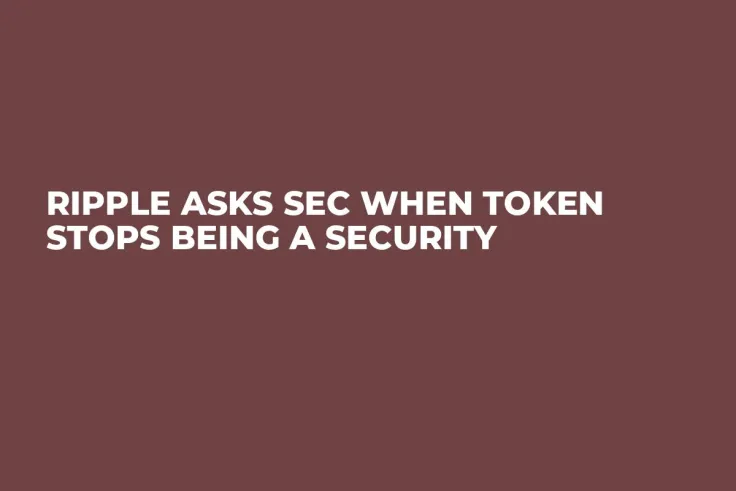
Ripple has a follow-up letter to the SEC Crypto Task Force in response to Commissioner Hester Peirce’s “New Paradigm” speech.
The letter focuses on the question of how a digital asset, initially sold as part of an investment contract, can become independent of that contract and no longer a security.
Ripple supports the view that most fungible crypto assets are not securities when traded on the secondary market since they lack the defining legal relationship of a security.
The San Francisco-based company has cited Judge Torres’s 2023 ruling in the SEC v. Ripple case, which determined that XRP itself is not a security. However, some institutional sales were classified as securities.
Ripple has urged congressional lawmakers to address the remaining legal gaps.
They criticize the SEC’s past reliance on vague standards, calling for clear guidance based on the existing law.
A digital asset should be considered separate from an investment contract unless a material promise made during the original investment contract remains unfulfilled or the current holder has enforceable rights against the issuer based on that promise.
Mere token delivery or general statements shouldn’t qualify as such promises, according to Ripple.
The company also supports a safe harbor for good-faith actors, but stresses that it should not imply that digital asset transactions are subject to securities laws.
Ripple has also proposed a "maturity" test as a clearer standard to determine when an asset is no longer part of an investment contract, using such criteria as market value threshold and the time period during which a network remains open and permissionless. Moreover, no party is supposed to have unilateral control over the network’s core functionality.

 Vladislav Sopov
Vladislav Sopov Dan Burgin
Dan Burgin